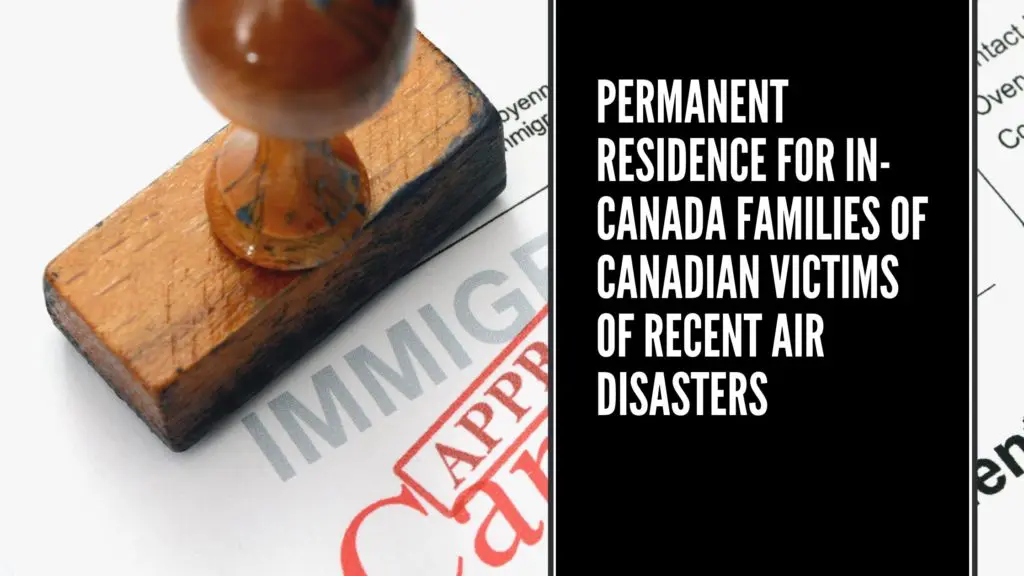The Canadian Government launched a Temporary public policy to facilitate permanent residence for in-Canada families of Canadian victims of recent air disasters which came into force on May 12, 2021, and will end on May 11, 2022.
The Government of Canada has launched this pathway to support the families of the victims of Ukraine International Airlines flight 752 (PS752) and Ethiopian Airlines flight 302 (ET302) disasters.
Who is eligible for permanent residence for in-Canada families of Canadian victims of recent air disasters and what are the conditions?
To be eligible for permanent residence for in-Canada families of Canadian victims of recent air disasters the following conditions and requirements must be met:
- The member of your family who was a victim of flight ET302 or PS752 must have been a
- Canadian citizen
- permanent resident of Canada
- foreign national who had a positive eligibility decision on their permanent residence application
- You must be
- the spouse or common-law partner of a Canadian victim of flight ET302 or PS752
- one of the following relatives of a Canadian victim or of their spouse or common-law partner:
- child
- grandchild
- parent
- grandparent
- sibling (including half-siblings)
- aunt or uncle (sibling of a victim’s parent or sibling of a victim’s spouse or common-law partner’s parent)
- niece or nephew (child of a victim’s sibling or child of a victim’s spouse or common-law partner’s sibling)
- You must be in Canada at the time of application, and you must have done one of the following:
- had valid temporary resident status in Canada when the member of your family passed away on flight ET302 or PS752
- been granted temporary residence after the member of your family passed away on flight ET302 or PS752, as long as you applied for temporary resident status in Canada before March 23, 2021
- made a refugee claim in Canada on or after the date that the member of your family passed away on flight ET302 or PS752, and your claim has not been found ineligible to be referred to the Immigration and Refugee Board
- benefitted from the 2020 or 2021 temporary residence public policy for families of victims of Flight PS752
- not be inadmissible other than for non-compliance for having entered Canada without the required visa or other document required under the Regulations; having failed to comply with conditions related to their temporary stay related to having overstayed a visa, visitor record, work permit, student permit, or temporary resident permit or having worked or studied without being authorized to do so under the Act;
- not have a refugee claim which has been: determined to be ineligible to be referred to the Immigration and Refugee Board (IRB); determined to be withdrawn (unless withdrawn immediately prior to being granted permanent residence through this public policy) or determined to be abandoned; determined to be manifestly unfounded (MUC) or with no credible basis (NCB); determined to be excluded under Article 1F of the Refugee Convention; or received a determination that refugee protection has been ceased or vacated; and,
- If applicable, as a final condition of the public policy, has withdrawn their refugee claim before the Refugee Protection Division (RPD) or their appeal at the Refugee Appeal Division (RAD) of the IRB, in order to be granted permanent residence through the public policy. Should the individual decide not to withdraw their refugee claim at the RPD or appeal at the RAD, those processes will proceed but their application for permanent residence under this public policy will be refused.
Meet any other requirement set out in the Public Policy which is outlined here.
If you would like more information about the public policy for permanent residence for in-Canada families of Canadian victims of recent air disasters you may want to book a paid consultation to discuss your matter with us.
Please note that this should not be construed as Legal Advice. This is General Information and should not be acted on.

